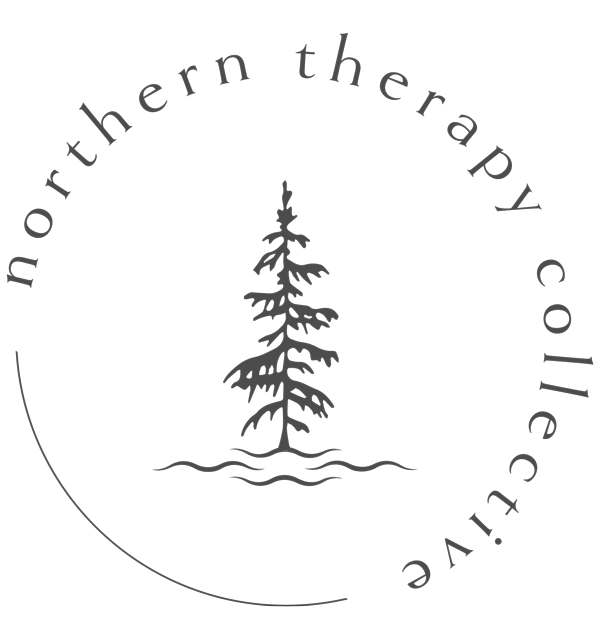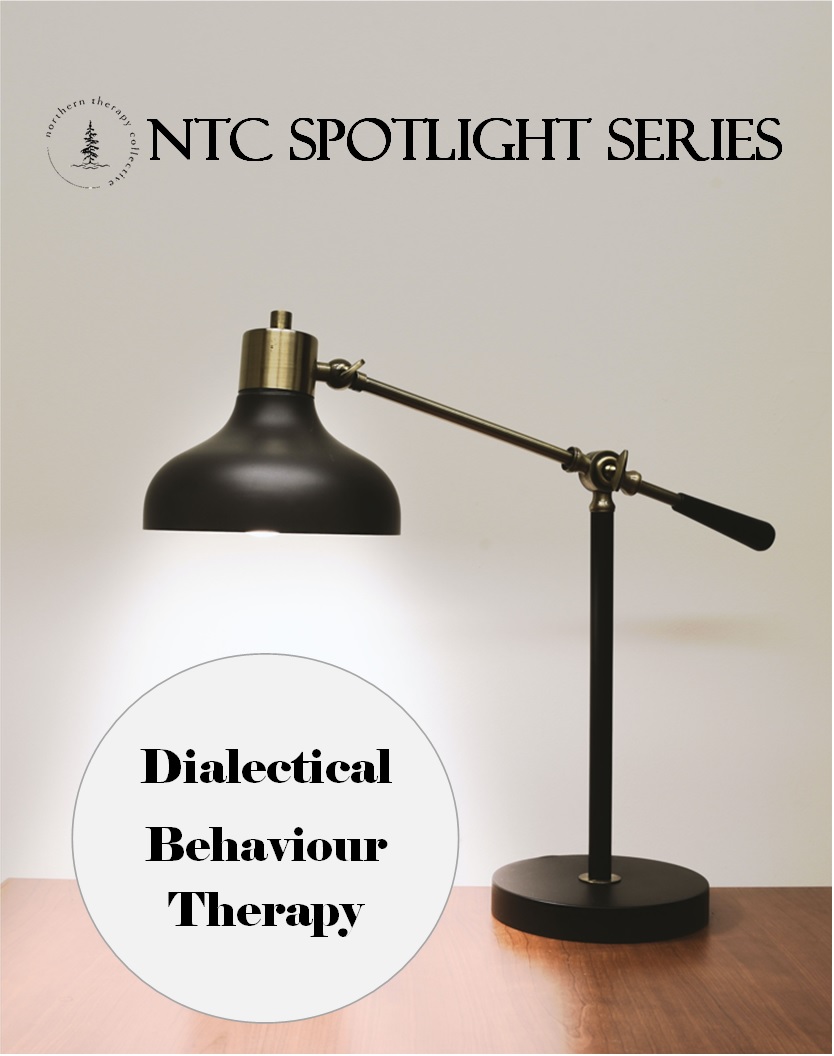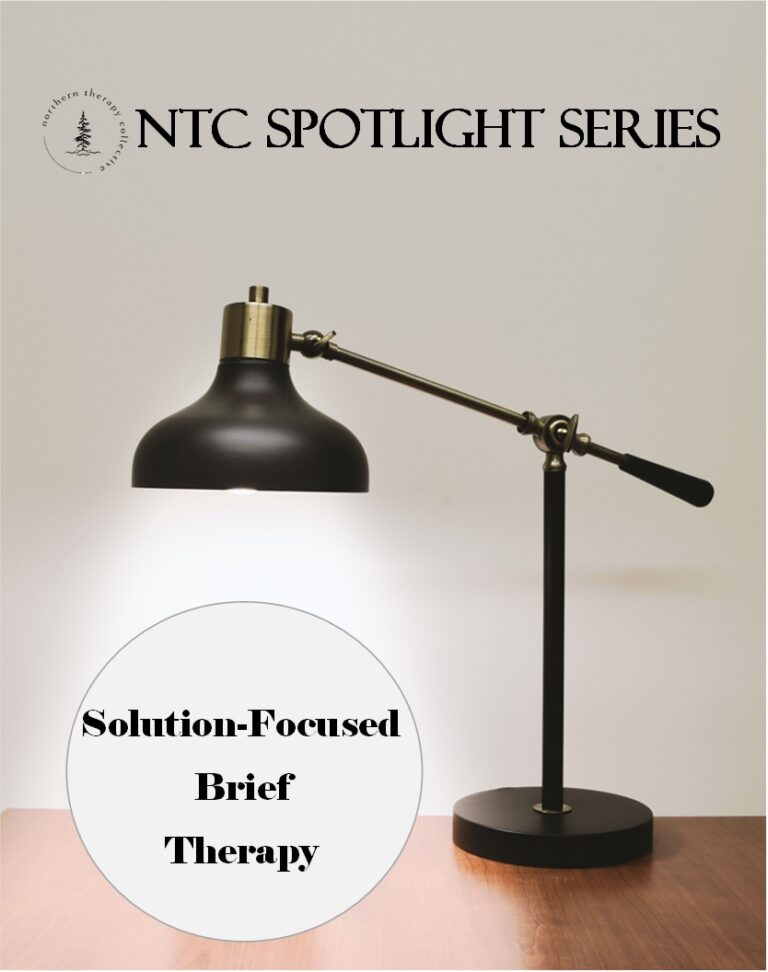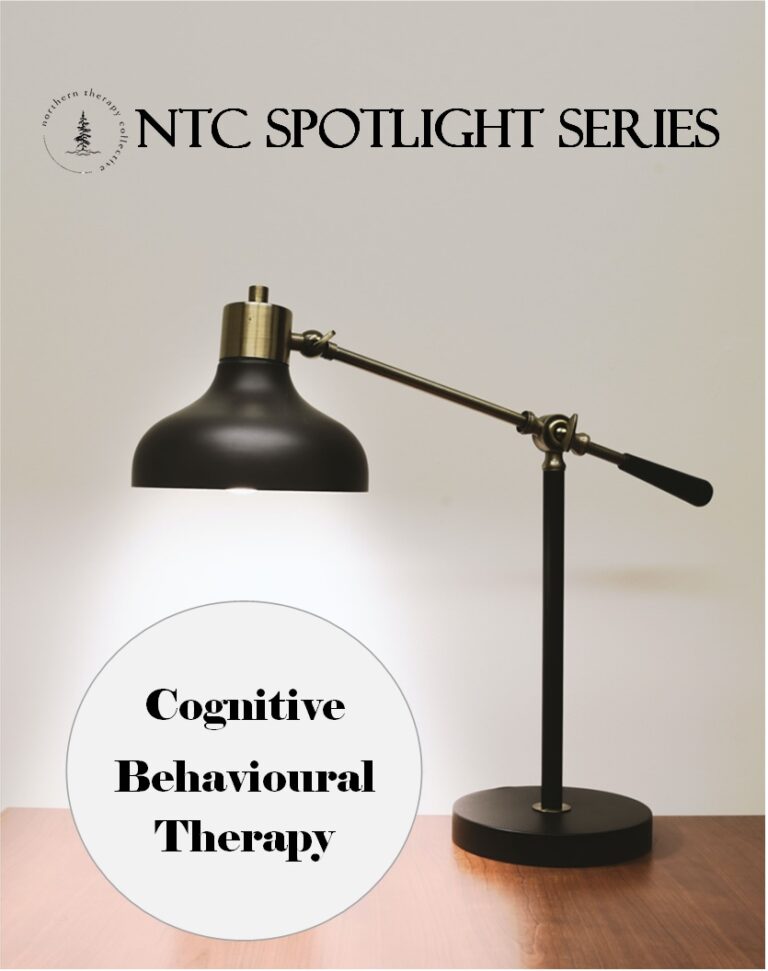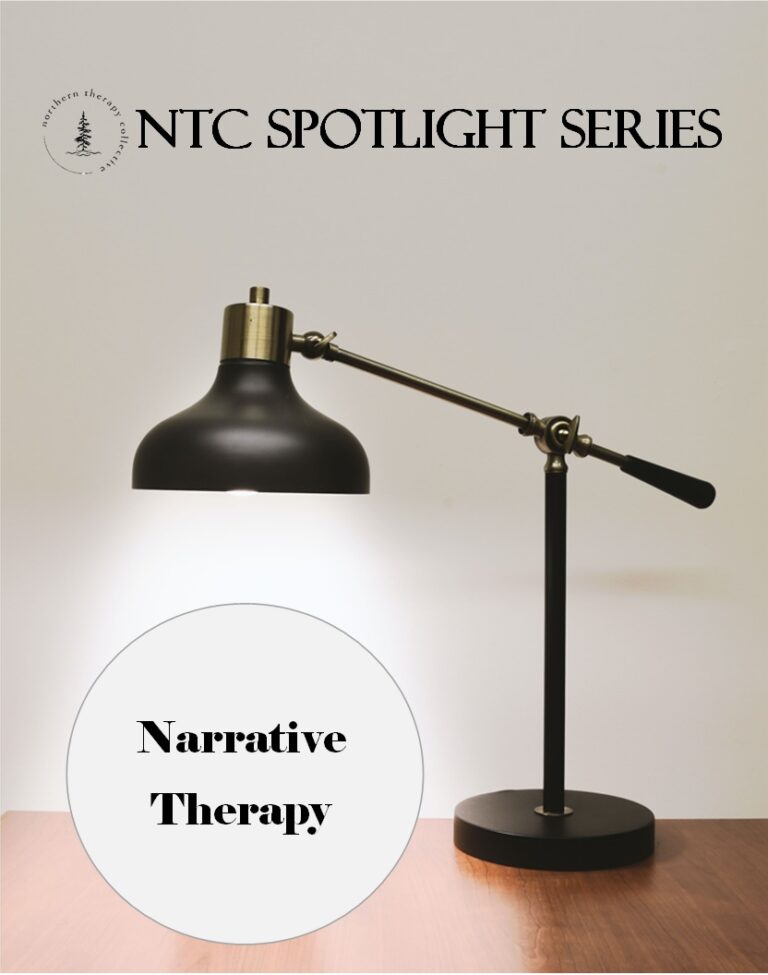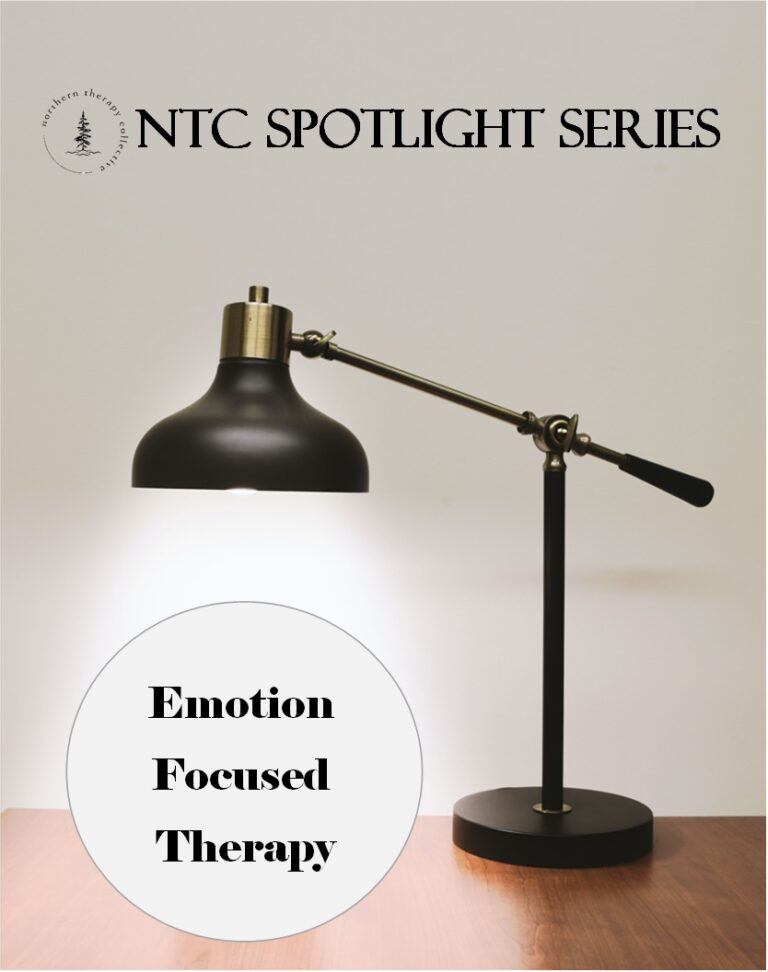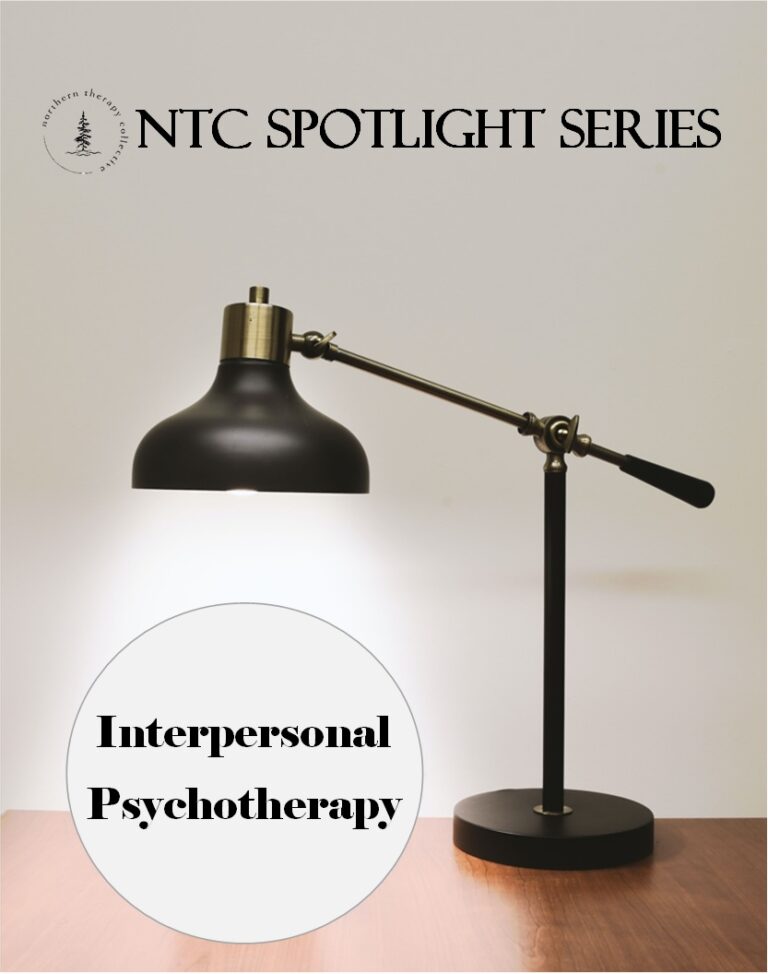SPOTLIGHT ON: Dialectical Behaviour Therapy (DBT)
Okay, so first things first – what the heck is a “dialectic” and how do we use it in therapy? Simply put, “dialectical” means two opposing things existing at once. When it comes to mental health (or indeed anything in life) there is great temptation to label things in all-or-nothing terms (e.g. “either I have a disorder or I’m cured”). This type of thinking also implies that if A is true, B must be false. The problem with this perspective is that it tends to be over-simplistic and – as we know – not always reflective of a real and nuanced life. However, Dialectical-Behaviour Therapy takes a different stance.
In DBT, the (seemingly) opposing forces that we aim to work on are ACCEPTANCE and CHANGE. Many people feel that if they accept uncomfortable thoughts, emotions, or life circumstances, then they are “surrendering” or committing themselves to a life of negativity but this is simply not true. DBT helps us to “radically accept” that our experiences are real and valid while also providing concrete skills and strategies for change. These skills are typically divided into 4 subtypes or groups (see graphic below).
Dialectical-behaviour therapy (DBT) is frequently thought of as a “sister” therapy to CBT as it follows many of the same foundational principles, however it tends to focus more heavily on the social and emotional aspects of day-to-day life.
MAJOR PLAYERS:
- Dr. Marsha Linehan – developed DBT in the 1970’s in response to her own mental health struggles
FOOD FOR THOUGHT:
- “It is hard to be happy without a life worth living. This is a fundamental tenet of DBT. Of course, all lives are worth living in reality. No life is not worth living. But what is important is that you experience your life as worth living – one that is satisfying, and one that brings happiness.”
- Marsha M. Linehan (DBT Skills Training Manual)
- “You can’t think yourself into new ways of acting; you can only act yourself into new ways of thinking.”
- Marsha M. Linehan (Building A Life Worth Living: A Memoir)
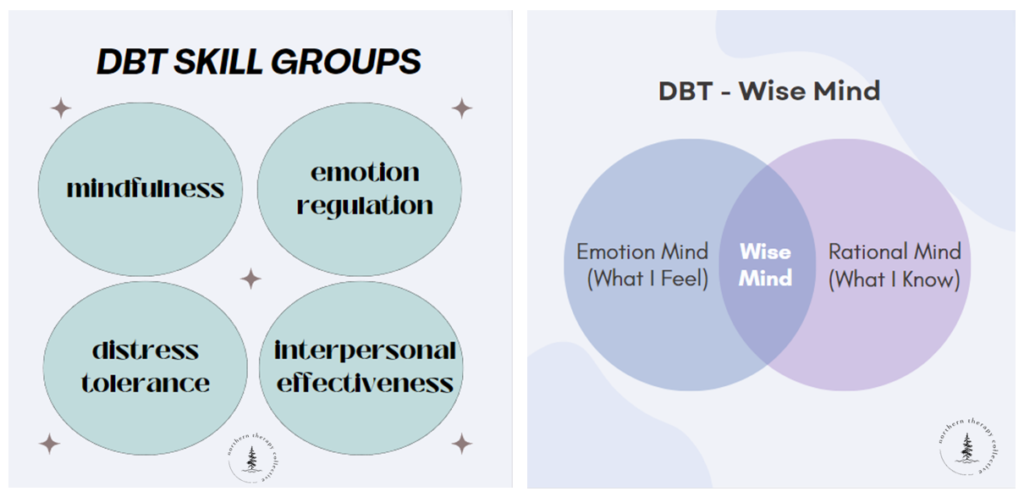
DEFINING FEATURES:
- Evidence-based (well supported by psychological research)
- A full/intensive round of DBT treatment usually requires at least 1 year of weekly appointments but skill groups can be delivered much quicker (typically anywhere from 8-16 weeks)
- DBT encourages a “Wise Mind” perspective, defined as a “balanced middle ground” between the Emotion Mind (what you feel) and the Rational Mind (what you know)
- Originally developed for the treatment of personality disorders (such as BPD) but is also applicable to a wide variety of mental health concerns (e.g. depression, anxiety)
POSSIBLE INTERVENTIONS:
- Mindfulness Exercises (grounding, leaves on a stream, etc.)
- “TIP Skills” for Changing Body Chemistry
- Radical Acceptance & Turning the Mind
- Exploring Dialectics (pros and cons)
- “Improving the Moment” (with imagery, meaning, relaxation, prayer, etc.)
- Strategies for Self-Soothing (cultivating pleasure and calm through the 5 senses)
- Identifying and Describing Emotions (includes: “riding the wave” and letting go)
- Opposite Action (changing behaviors by acting “as if”)
- Interpersonal Effectiveness Skills (identifying priorities in your interactions with others, practicing self-respect/self-validation, learning to validate others, etc.)
